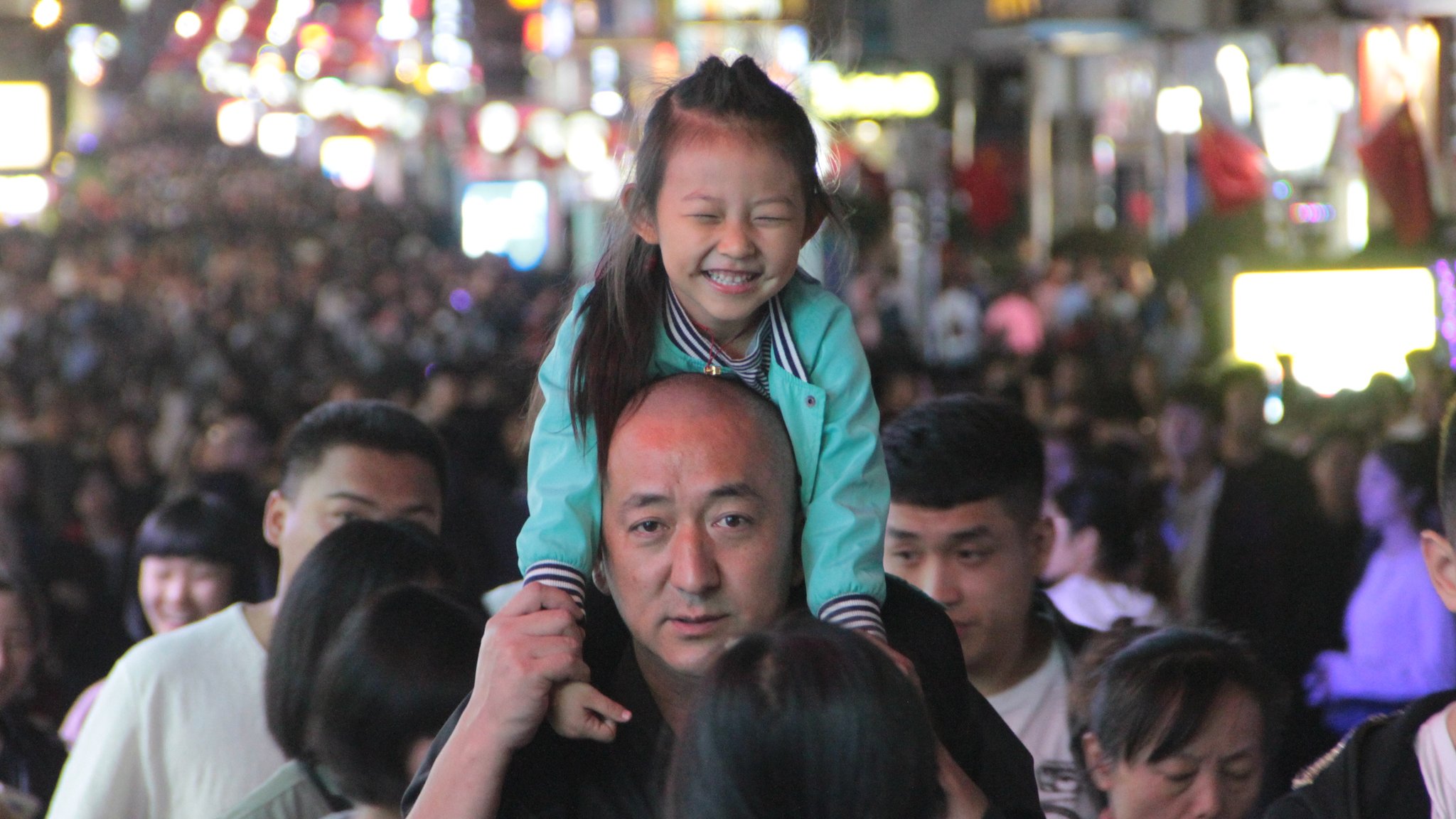
Forty years ago, China introduced major economic reforms - lifting hundreds of millions of people out of poverty and leading to it becoming the second-largest economy in the world.Here's the story of how China changed - in pictures.1.
Wheels and more wheels This is what Chang'an Avenue - a major street in the capital Beijing - looked like in 1978.
Image copyrightGetty ImagesFour decades on, the street looks pretty different.Image copyrightGetty ImagesCar ownership in China has soared - there are now over 300 million registered vehicles in the country - while bike ownership has dropped.It's a result of China's urbanisation and economic growth - but has also come at a price.Frequent traffic jams in many cities have led to licence plate quotas being imposed.And the World Health Organization says more than a million people in China die every year due to air pollution.2.
Money money money Compare a 1978 shop windowImage copyrightGetty Images with one from this decade.Image copyrightGetty ImagesAs China's gross domestic product (GDP) has skyrocketed, its shopping habits have changed too.Chinese shoppers are among the world's highest consumers of luxury goods.President Xi Jinping emphasised China's economy - and how it had transformed people's lives - during a long speech on Tuesday marking the anniversary of the economic reforms."Grain coupons, cloth coupons, meat coupons, fish coupons, oil coupons, tofu coupons, food ticket books, product coupons and other documents people once could not be without have now been consigned to the museum of history," he said."The torments of hunger, lack of food and clothing, and the hardships which have plagued our people for thousands of years have generally gone and won't come back."Image copyrightGetty ImagesImage caption Apple is a popular brand in China - though not as popular as Huawei There's even a political element to this.
As Chinese consumers have grown richer, they've become increasingly influential.
Several companies have been forced to apologise after offending Chinese sensibilities, and while foreign brands are generally coveted in China, more and more shoppers are starting to say they prefer local brands.
It's a sentiment that Mr Xi also touched on in his speech, when he said: "China is increasingly approaching the centre of the world stage.""No-one is in a position to dictate to the Chinese people what should or should not be done."3.
Families and childrenLife has changed significantly for children of the 2010s, compared to children of the 1970s.Image copyrightGetty ImagesImage caption A family enjoy tea in a park in Guangzhou, 1978 For starters, they are likely to live longer - China's life expectancy was 66 back in 1978, and is now about 76.
They're also more likely to have a better education - literacy rates increased from 66% in the early 1980s to 95% in 2010.For most Chinese children in the 1970s, going on an overseas holiday would have been almost unthinkable.
Today China has the world's largest number of outbound tourists - who spend billions of dollars while abroad.Image copyrightGetty ImagesImage caption A girl celebrates the golden week national holiday with her dad in October 2018 Chinese students are now also more likely to end up studying abroad.
According to Chinese government figures, China is currently the world's largest source of international students.
One thing hasn't changed as much as the government would like though - the birth rate.In 1979 - a year after starting economic reforms - the government imposed a one-child policy to try and curb population growth.Birth rates were declining anyway - but the controversial policy was harshly enforced in some cases.Couples who violated the policy could face punishments ranging from fines and the loss of employment to forced abortions and sterilisation.China's population, like those of many other developed countries, is now ageing.In 2015, the government decided to end the one-child policy and allow couples to have two children.
There is even speculation that the policy may be relaxed further - to allow three or more children - in the near future.But many Chinese millennials see having more children as too expensive - or a burden on their careers.4.
To market, to marketAs economies change, so do people's diets, and what they want to spend their money on.Here's a marketplace in the central city of Xi'an, back in 1978.Image copyrightGetty ImagesAnd here's what some of Xi'an's street markets look like now.Image copyrightMatteo ColomboImage copyrightGetty ImagesMany of the signs are advertising meat dishes - and statistics show meat consumption in China has risen significantly over the past few decades.Pork, for example, used to be considered a luxury food reserved for special occasions - now, figures suggest the average Chinese person will consume about 40kg of pork per year.
Reporting by the TheIndianSubcontinent's Helier Cheung.

 11
11







